All Stories
-
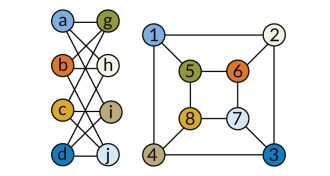 Math
MathYear in review: New algorithm quickly spots identical networks
In what may be a once-in-a-decade advance, a computer scientist claimed to have devised an algorithm that efficiently solves the notorious graph isomorphism problem.
By Andrew Grant -
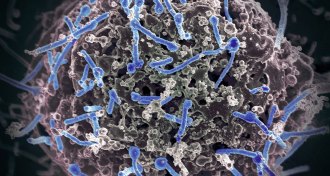 Health & Medicine
Health & MedicineYear in review: Ebola vaccines on the way
After more than a year of furiously developing and testing potential Ebola vaccines, two candidates have risen to the top and may soon be available for use.
By Meghan Rosen -
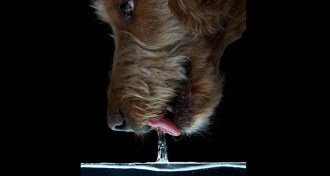 Life
LifeScience explains what makes dogs such sloppy drinkers
There’s hidden precision in the splashy mess of a dog drinking.
By Susan Milius -
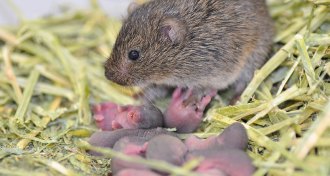 Animals
AnimalsForgetful male voles more likely to wander from mate
Poor memory linked to a hormone receptor in the brain could make male prairie voles more promiscuous.
-
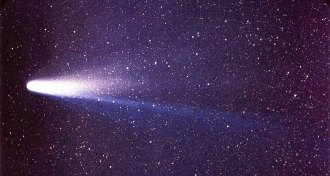 Planetary Science
Planetary ScienceComets-spewing-oxygen club gets new member
Halley’s comet becomes possibly the second comet known to be carting around oxygen buried since the formation of the solar system.
-
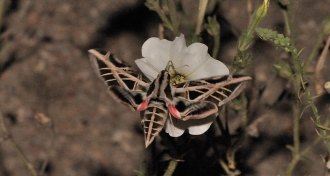 Plants
PlantsSingle gene influences a petunia’s primary pollinator
Mutations on a single gene determine how much ultraviolet light a petunia flower absorbs, and in turn, which animal pollinates the flower.
-
 Science & Society
Science & SocietyAnalysis gives a glimpse of the extraordinary language of lying
A study of fraudulent research articles reveals patterns in language that indicate a paper is worthy of closer scrutiny.
-
 Climate
Climate195 nations approve historic climate accord
The Paris climate talks end with delegates from 195 nations releasing a hard-fought agreement to curb climate change and limit warming to 2 degrees Celsius.
-
 Cosmology
CosmologyDebate grows over whether X-rays are a sign of dark matter
The dwarf galaxy Draco, which is chock-full of dark matter, doesn’t emit a band of X-rays that researchers hoped were produced by the mysterious invisible stuff.
By Andrew Grant -
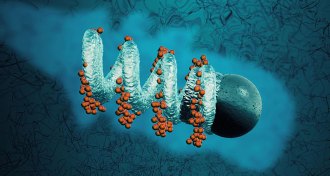 Life
LifeTo push through goo, use itty, bitty propellers
Newly designed micropropellers mimic bacteria to move through viscous surroundings.
-
 Animals
AnimalsNew movie asks viewers to care about whale hunters. Will they?
A new movie tells the tale of sailors shipwrecked by a whale. But it’s hard to feel sorry for the people trying to kill the animal.
-
 Planetary Science
Planetary ScienceIt’s a new planet! It’s an unknown star! It’s — oops!
A couple of unexpected wandering points of light in the sky could be new planets or even a dim star orbiting the sun, but researchers have plenty of reasons to be skeptical.